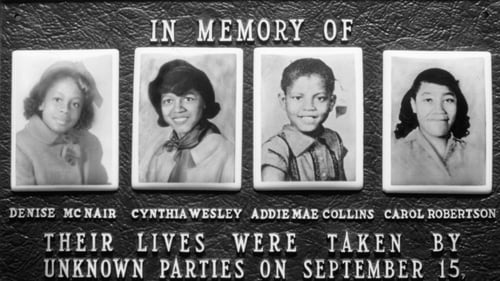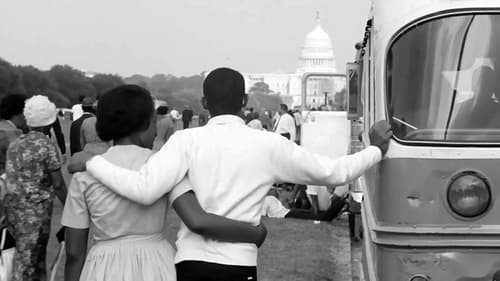
Self
A once-in-a-lifetime experience featuring first-ever performances of tracks from All Over the Place, a retelling of the story of KSI, past, present and future with special guests and key characters throughout his journey and more. Let KSI take you on an adventure through his world. Get ready for thrills, laughs and lots of surprises alongside huge production value, highly stylised artistic direction, flawless tunes, costume changes, a boxing match and choreography by industry leaders Black Skull Creative.

Self - with Freedom Riders (archive footage) (uncredited)
On September 15, 1963, a bomb destroyed a black church in Birmingham, Alabama, killing four young girls who were there for Sunday school. It was a crime that shocked the nation--and a defining moment in the history of the civil-rights movement. Spike Lee re-examines the full story of the bombing, including a revealing interview with former Alabama Governor George Wallace.

The Black Audio Film Collective’s seventh film envisioned the death and life of the African American revolutionary as a seven part study in iconography as narrated by novelist Toni Cade Bambara and actor Giancarlo Espesito. The stylized tableaux vivants that memorialise Malcolm’s life referenced the early 20th century funeral photography of James Van der Zee’s The Harlem Book of the Dead and the elemental static cinematography of Sergei Paradjanov’s The Colour of Pomegranates.

Self (archive footage) (uncredited)
才人スパイク・リー監督が、自身も尊敬する、近代アメリカきっての偉大な思想家であり、キング牧師と並ぶ黒人解放運動のリーダー、マルコムXの生涯を描いた伝記的作品。物語は、マルコムがチンピラだった頃から始まる。若くして窃盗罪で服役し、刑務所の中でイスラム教に改宗、出所ののち彼は、イライジャ・ムハマットの下でブラック・モスレムきっての白人を敵対視する煽動家となる。やがて組織に疑問を感じ、多人種共存の道を探ってメッカを巡礼、そしてあらゆる人種の真の友愛を悟って帰国。そしてアメリカ黒人の解放運動を今までになかった新しい理念によって大きく展開しようとした矢先の1965年2月21日、ハーレムのオーデュボン・ボールルームでの講演中に13発の銃弾を浴びて射殺されるまでの、壮絶な軌跡を克明に追う。原作は、マルコムXが著わし「ROOTS/ルーツ」のアレックス・ヘイリーがまとめた『マルコムX自伝』。D・ワシントンのパワフルな芝居とテンポの良い演出が、この長尺を一気に見せる。

Self - Remarks After Death of Malcolm X (archive footage)
James Earl Jones narrates this fascinating and moving documentary about the life of the assassinated black leader through various sources.

Self
The March, also known as The March to Washington, is a 1964 documentary film by James Blue about the 1963 civil rights March on Washington. It was made for the Motion Picture Service unit of the United States Information Agency for use outside the United States – the 1948 Smith-Mundt Act prevented USIA films from being shown domestically without a special act of Congress. In 1990 Congress authorized these films to be shown in the U.S. twelve years after their initial release. In 2008, the film was selected for preservation in the United States National Film Registry by the Library of Congress as being "culturally, historically, or aesthetically significant". (Wikipedia)

Self
Nominated for Emmy for "Program of the Year." First look at the lives of Negros on American television - in their own word. Produced/Directed by Nicholas Webster, co-written by Webster an Louis Lomax.

Self
When he rolled into the Jim Crow South on a Greyhound bus - a black man sitting in the whites-only front seat - James Farmer was scared. "Courage is not being unafraid, but doing what needs to be done in spite of fear," said the founder of the Freedom Rides and pioneer of the earliest sit-ins. A relentless leader, a dynamic speaker, and a forceful organizer, Farmer was one of the first civil rights activists to use nonviolent direct action to fight for dignity and justice. Yet at what cost? His own family suffered from his frequent absences, prison stays, and threats made on his life. And, he was continually disappointed in his lack of recognition, especially after witnessing the momentous legacy of Martin Luther King, a man ten years his junior. The Good Fight chronicles Farmer's life, in his own words, from his earliest days as a "Great Debater" at Wiley College to his legacy teaching a new generation of students about the movement that shaped a country. —Laura Neitzel







